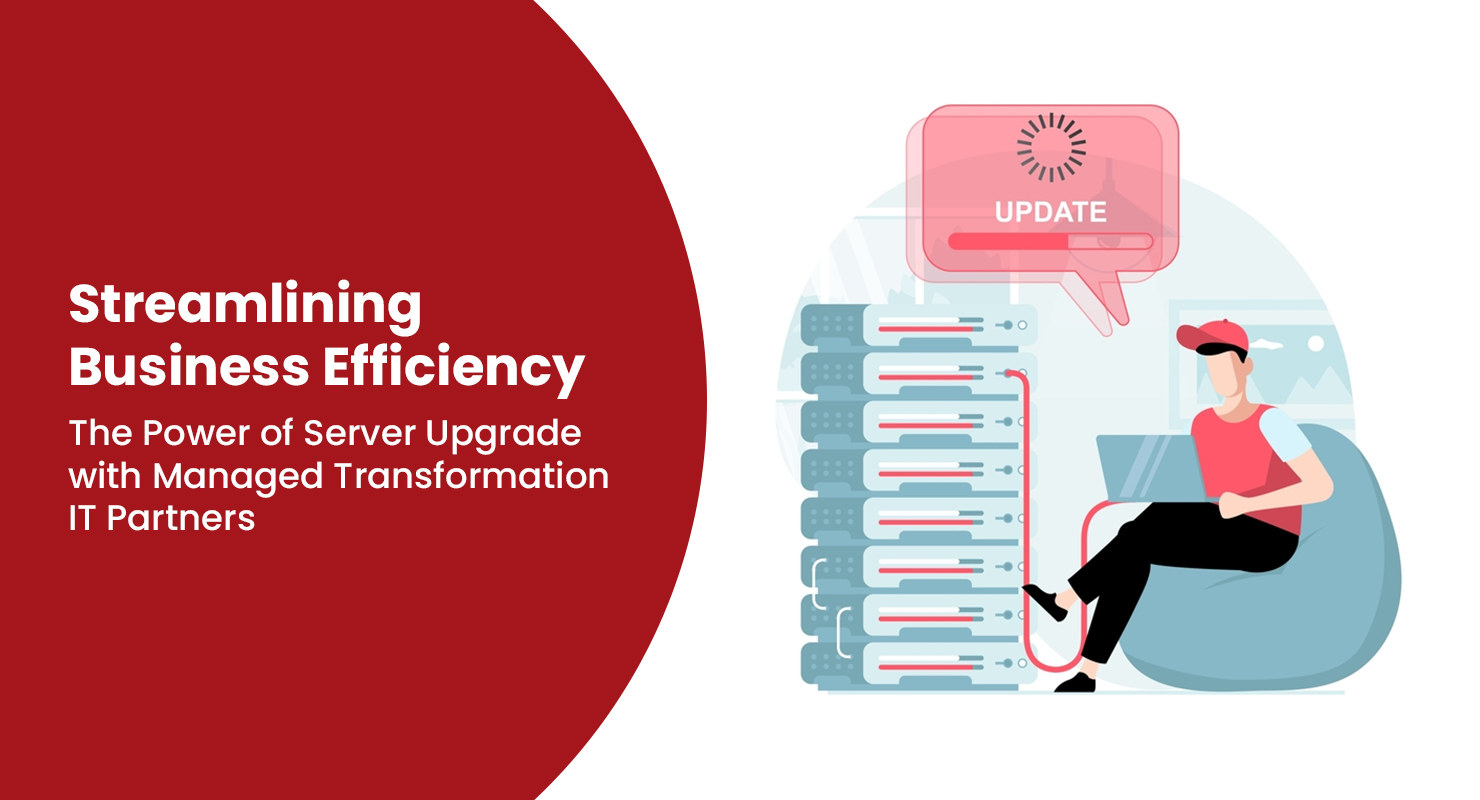In today’s rapidly evolving technological landscape, businesses face the challenge of keeping their IT infrastructure up-to-date, efficient, and secure. A crucial aspect of maintaining a robust IT environment is regular server upgrades. However, managing server upgrades can be complex and time-consuming, requiring specialized knowledge and expertise. This is where Managed IT services can play a vital role. In this blog post, we will explore how upgrade in servers with managed IT transformation can be beneficial, helping businesses streamline their operations and stay ahead in the competitive market.
Understanding the Need for Server Upgrade:
The primary reasons behind the need for server upgrades are outdated hardware, performance issues, security vulnerabilities, and increasing business demands.
- Performance Bottlenecks and Slow Response Times: When your server struggles to keep up with the demands of your business, it’s a clear indication that an upgrade is needed. Slow response times, increased processing delays, and frequent system crashes are signs that your server is underperforming. Upgrading to a more powerful server can significantly improve the system responsiveness, boost productivity and enhance the user experience.
- Capacity and Storage Limitations: If your server is running out of storage space or reaching its processing capacity, it’s time to consider an upgrade. Insufficient storage can hinder Data management, limit application scalability, and impact business operations. Upgrading to a server with expanded storage capacity and improved processing capabilities allows for seamless growth and accommodates the increasing demands of your business.
- Security Vulnerabilities: As cyber threats continue to evolve, server security is of paramount importance. Outdated server hardware and software may lack the necessary security features and updates, making your system vulnerable to breaches. If your server is no longer receiving regular security patches or fails to meet compliance requirements, it’s time to upgrade to a more secure and robust server infrastructure to protect sensitive data and safeguard your business.
- End of Manufacturer Support: Manufacturers provide support, updates, and maintenance for server hardware and software within a specific lifecycle. When your server reaches the end of manufacturer support, it becomes more susceptible to hardware failures, software compatibility issues, and security vulnerabilities. Upgrading your server before the end of support ensures access to the latest features, patches, and technical assistance, providing peace of mind and reducing the risk of critical system failures that’s when managed IT transformation services will help you to upgrade Servers.
- Business Growth and Expansion: As your business grows, so do the demands on your server infrastructure. If your current server struggles to handle increased workloads or fails to support new applications and services, it’s a clear sign that an upgrade is necessary. A scalable server solution allows you to accommodate growing data volumes, handle increased user traffic, and effectively meet the evolving needs of your expanding business.
- Cost Considerations: While server upgrades involve upfront costs, it’s important to evaluate the long-term cost implications of maintaining an outdated server. Ageing servers often require more frequent repairs, consume higher energy levels, and result in increased downtime, leading to potential revenue losses. Assessing the total cost of ownership and weighing it against the benefits of an upgraded server can help justify the investment.
The Role of Managed Transformation IT Partner:
They bring specialized knowledge, experience, and the industry’s best practices to the table, ensuring a smooth and efficient server upgrade process.
- Expertise and Experience: Explore how a managed transformation IT Service has a team of skilled professionals with extensive experience in server upgrades. They possess the knowledge to assess current infrastructure, identify upgrade requirements, and implement solutions tailored to business needs.
- Minimized Downtime: Discuss how a managed transformation IT partner employs meticulous planning and implementation strategies to minimize server downtime during the upgrade process. Emphasize their ability to execute seamless transitions, ensuring business continuity.
- Enhanced Scalability and Future-Proofing: Highlight how a managed transformation IT partner assists in selecting the right server hardware, software, and configurations that align with the business’s growth plans. They ensure scalability, flexibility, and future-proofing to accommodate evolving technology demands.
- Improved Security and Data Protection: Address the significance of security in server upgrades. Explain how a managed transformation IT partner ensures robust security measures, including data backup, disaster recovery, and implementation of advanced security protocols to safeguard critical business information.
By entrusting server upgrades to experienced professionals, businesses can unlock the full potential of their IT systems, remain competitive, and achieve sustainable success in today’s digital landscape.


